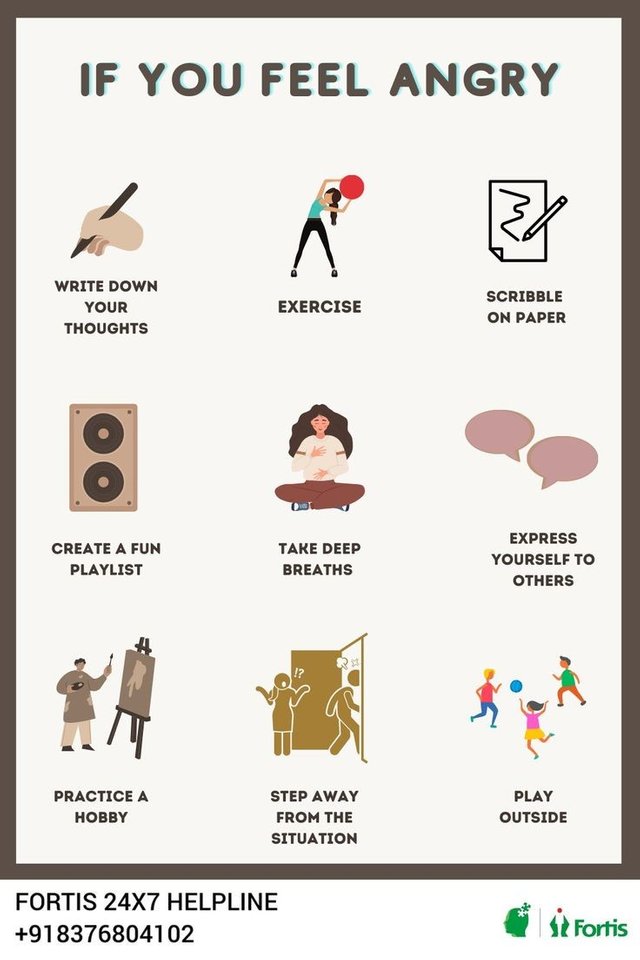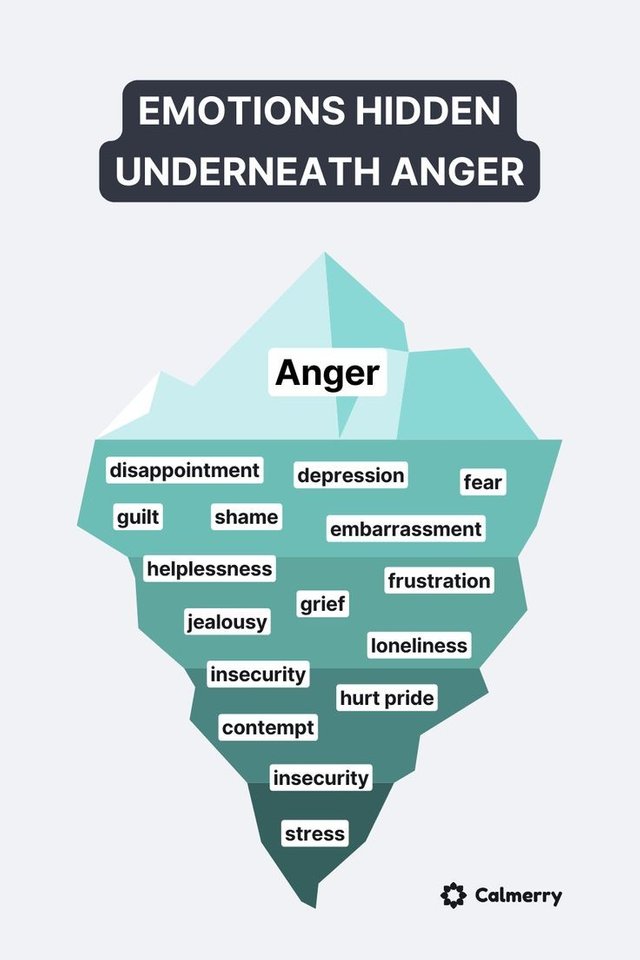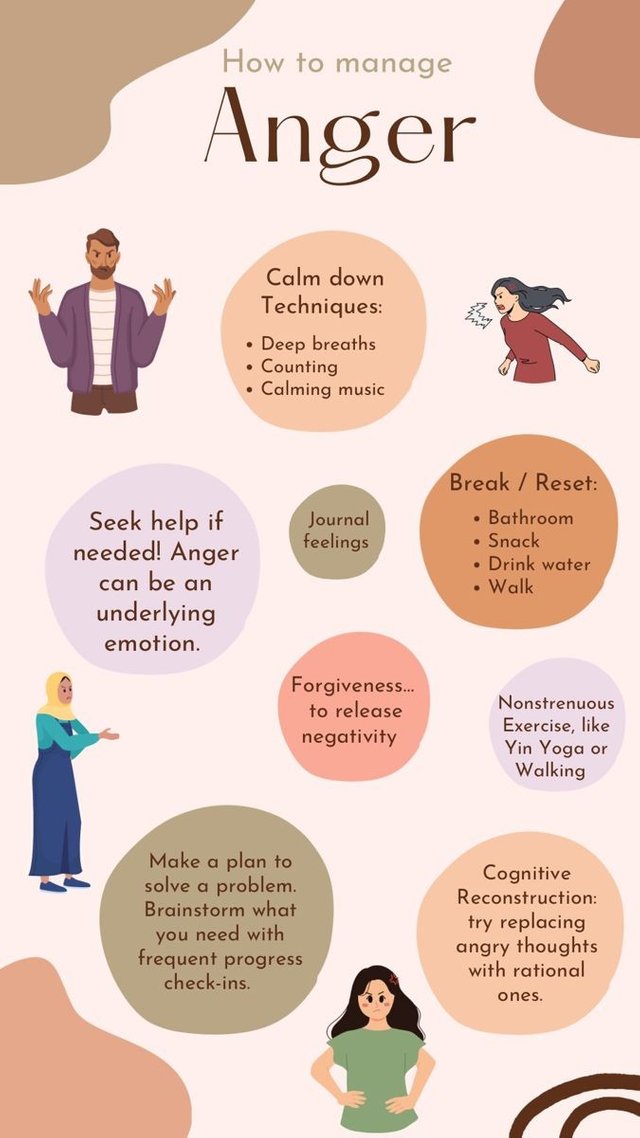Certainly, here are the key points to control unnecessary anger:
- Self-Awareness: Understand your anger triggers and patterns.
- Pause and Breathe: Take deep breaths to calm your immediate emotional response.
- Count to Ten: Give yourself time before reacting impulsively, counting to ten to regain composure.
- Challenge Negative Thoughts: Replace irrational thoughts with rational ones, defusing anger's intensity.
- Practice Empathy: Try to understand the other person's perspective; empathy reduces hostility.
- Healthy Outlets: Engage in physical activities or hobbies to release pent-up frustration.
- Effective Communication: Express your feelings calmly, using "I" statements to avoid blame.
- Learn Relaxation Techniques: Practice meditation, yoga, or mindfulness for overall emotional balance.
- Problem-Solving: Address the source of anger constructively; find solutions instead of focusing on the problem.
- Seek Support: Talk to friends, family, or a therapist for guidance and emotional release.
Developing these strategies requires patience and self-reflection. By incorporating these practices into your daily life, you can gain better control over your anger, fostering healthier relationships and emotional well-being.
Can lazy Ness causes mood swings ??
Certainly. Laziness, often accompanied by a lack of physical activity, can indeed contribute to mood swings. When a person leads a sedentary lifestyle, the body and mind lack necessary stimulation, leading to feelings of lethargy and irritability. Additionally, inactivity can disrupt sleep patterns, further destabilizing moods. Regular exercise plays a vital role in promoting mental well-being. It releases endorphins, natural stress relievers, enhancing mood and energy levels. By incorporating physical activity, individuals can manage mood swings, reduce stress, anxiety, and depression, fostering a more balanced emotional state and overall health.



